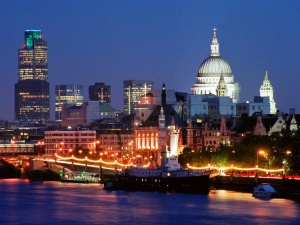London tops European hospitality

London has come out top in study into European hotel occupancy rates. The quarterly report by Deloitte proved grim reading, with revPAR rates across Europe down 19.2% over the past quarter to €58, with Glasgow and Edinburgh the only two cities to show positive occupancy growth.
London saw revPAR fall 7.6% in the year to September, but maintained the highest occupancy in Europe at 79.8%.
In the euro zone, hoteliers saw revPAR fall 16.8% as the strength of the Euro against Sterling deterred travellers to the traditional hotspots of Spain, France and Italy.
Of Europe’s top three holiday destinations, Spain was hit the hardest, due to a fall in the number of tourists from its major source markets, the UK, Germany and France. Spain has also met intensified competition from countries further east including Turkey, Tunisia, Egypt and Morocco. Spain’s two key cities, Barcelona and Madrid reported revPAR declines of 22.5% and 30.5% respectively.
Commenting, Alex Kyriakidis, Global Managing Partner of Tourism Hospitality & Leisure at Deloitte, said: “The past year has been one of turbulence for European hoteliers as the economic crisis has taken its toll. Soaring unemployment, the outbreak of the H1N1 influenza virus and the strength of the Euro against many world currencies has seriously impacted hotel performance in Europe.
ADVERTISEMENT
“As many consumers chose the “staycation” over travelling abroad, and businesses tightened their purse strings on corporate travel - hotels, airlines and tour operators all saw a fall in performance and sales this year. Every city across the region reported declines in revPAR year-to-September, some hit more severely than others.”
In Germany, tourism is continuing to struggle due to a slowdown in trade fair business, stagnating leisure demand and an increase in hotel supply in a number of cities.
Dusseldorf saw the largest fall in revPAR, down 33.3%, while Hamburg, Berlin, Frankfurt and Cologne reported less severe declines.
In the non-euro zone, Prague reported some of the greatest revPAR falls year-to-September, plummeting 26.4% due to new openings during 2009, totalling more than 900 rooms, combined with a fall in the number of tourist arrivals.
Moscow’s growth decade also came to an abrupt halt this year when the economic downturn and decline in business demand drove occupancy down to 57.8%. Approximately US$60 was knocked off average room rates, resulting in a 30.5% decline in revPAR – the weakest performing city outside the euro zone. Like Prague, Moscow has seen a wave of new openings this year and according to Lodging Econometrics is one of the top five cities in Europe in terms of new hotel projects on the horizon, with eight new projects, equating to over 2,000 rooms to open next year.
Marvin Rust, Hospitality Managing Partner at Deloitte, said: “We are already seeing signs of economic recovery across Europe. Consumer confidence has started to improve as well as a number of countries including Germany, France, Greece and Portugal closing the door on the recession. It will be an uphill struggle for some months to come before hoteliers start to post positive results once more, however it looks like the worst may be over and the New Year should see a reversal of part of the revPAR declines seen in 2009.”

